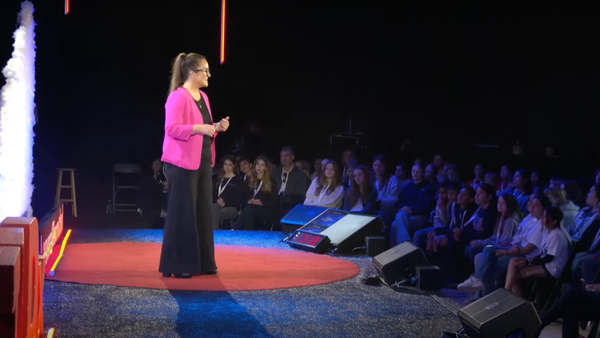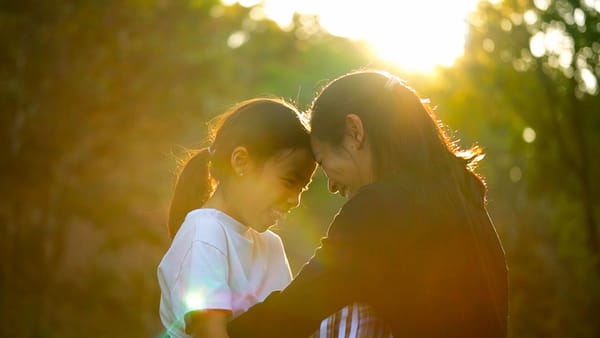What We Wish We Would Have Known About Autism Early On

When our son was first diagnosed with autism, I thought I was prepared. After all, I had spent years as a special education teacher, supporting students with different learning styles, sensory needs, and communication challenges. I understood accommodations, IEPs, and the power of early intervention. But when it became personal—when autism was no longer something I taught about but something we lived—everything shifted.
Looking back, there are things I wish we would have known earlier. Things that would have eased the weight of uncertainty, reshaped our perspective, and given us permission to breathe a little easier. If you’re at the beginning of this journey, here are five things I hope you’ll carry with you.
1. It’s Okay to Switch Therapists and Providers—The Fit Matters
One of the biggest things I wish we would have known early on is that not every therapist, provider, or specialist is going to be the right fit—and that’s okay. When you’re first starting out, it can feel like you have to just accept whatever services are offered, that questioning a therapist or switching providers might somehow hurt your child’s progress. But the truth is, the right fit matters.
These professionals are in your home, working with your child for hours every week. They become part of your routine, part of your space, part of your child’s world. And if something feels off—if their approach doesn’t align with your child’s needs, if their energy doesn’t sit right, if you feel unheard or dismissed—you have every right to advocate for a change.
We learned this the hard way. We stuck with therapists who weren’t a great fit longer than we should have because we were afraid of disrupting services. But once we made changes and found people who truly saw our son, who worked with him instead of against him, everything shifted. Therapy became something he could engage in rather than something he had to endure. And as parents, we felt heard and respected rather than questioned or dismissed.
So if you’re hesitating, wondering whether you should switch, let me reassure you: You’re not being difficult. You’re not overreacting. You’re advocating for your child, and that’s exactly what you’re supposed to do.
2. Milestones Take Time—Progress Is Happening Even When It Looks Different
As a teacher, I knew that every child developed at their own pace. I preached it to parents, reassured them that growth isn’t always linear. But when it was my own child, that patience I had for others seemed to disappear.
I remember sitting in meetings, asking questions like, “We can get him talking before Christmas, right?” I wanted a timeline, a concrete marker of progress. I thought if we just worked hard enough, if we found the right approach, if we did everything we were supposed to do, the milestones would come right on schedule. But that’s not how it works.
Looking back, I wish I had been more patient. I wish I had understood that pushing for something—especially verbal speech—wasn’t the same as supporting my child. I was so focused on talking that I wasn’t seeing all the other ways he was already communicating. The glances, the gestures, the way he led me to things he needed. The progress was happening right in front of me, but I was too caught up in an arbitrary goal to see it.
I wish I would have trusted the process more. Milestones take time, and sometimes they don’t come in the way you expect. What matters is moving forward, however that looks for your child. Whether it’s using words, an AAC device, gestures, or expressions—every form of communication is valid. Every step forward, no matter how small, is worth celebrating.
If I could go back, I wouldn’t ask, “Will he be talking by Christmas?” I would ask, “How can I support the way he communicates today?”
3. Not Everyone Will Show Up—But the Right People Will
When we first started this journey, I thought everyone in our lives would rally around us. I assumed family and friends would want to learn, to understand, to show up in ways that supported our son. But that’s not always how it happens.
Instead, we heard things like:"Well, everyone is different—why are you making this a big deal?""I don’t think he has autism.""Why didn’t you tell me sooner you were going through evaluations?"
Some friends slowly phased out because our life was too much for them. Some family members still haven’t acknowledged or learned about our son in a way that prioritizes his world—his way of living, his special interests, his needs. A decade in, we’ve stopped waiting for them to step up.
And you know what? That’s okay.
Because while some people have stepped away, others have stepped in. We have found friends who show up for us and celebrate our son for exactly who he is. We have family members who make the effort to learn, who ask how they can support, who don’t dismiss the struggles or downplay the reality of our life. And we’ve found a community—other parents, advocates, and allies—who get it without us having to explain.
The hardest lesson in all of this? Some people just won’t show up in the way you expected. And as painful as that can be, it also makes you cherish the ones who do. The people who take the time to truly understand, who see your child, who see you—those are the people who matter. And their support? That’s everything.
4. The Power of a Mentor Family—You Don’t Have to Do This Alone
In the early days of an autism diagnosis, everything can feel overwhelming. You’re drowning in evaluations, therapy recommendations, and questions no one seems to have clear answers for. In those moments, what I needed most wasn’t another article to read or another professional telling me what might work—I needed someone who had been there.
I wish we had found a mentor family sooner.
Having a family just a little ahead of us in the autism parenting world made all the difference. They were the ones who could say, “We’ve been through that transition, here’s what helped.” Or “That stage is hard, but you’ll get through it.” Sometimes, they didn’t even have to give advice—just knowing they were still standing (or crawling, or lying on the floor in exhaustion) was enough to remind us that we weren’t alone.
Because there will be moments when you doubt yourself. When you wonder if you’re doing enough, if you’re making the right choices, if you’re strong enough for this journey. And in those moments, having someone who gets it—who has felt that same exhaustion, that same fear, that same deep love for their child—can be the lifeline you didn’t know you needed.
Never underestimate the power of support through mentorship. Whether it’s an online connection, a local autism group, or a family you meet by chance, finding people who can walk this path with you changes everything. They don’t have to have all the answers. Sometimes, just knowing they’re still breathing is all the proof you need that you will get through this, too.
5. Family Dynamics Shift—And That’s Okay
Autism doesn’t just shape the life of the child diagnosed—it weaves its way into the entire family dynamic. It challenges marriages, reshapes sibling relationships, and forces you to adjust in ways you never expected. And while there is deep love in this journey, there are also hard days.
There will be moments when it doesn’t feel fair. When one child’s needs take center stage, and the others have to pivot. When your marriage feels like a business partnership, held together by schedules and survival. When exhaustion overshadows connection.
But behind closed doors, in the real and raw moments, there is also something else—something deeply beautiful. The bond that forms when you all figure it out together. The unspoken understanding between siblings who learn patience, empathy, and flexibility in ways most kids never do. The quiet strength of a marriage that keeps showing up, even when it’s hard.
You don’t have to do it all alone. Take the respite care. Ask for help. Carve out moments to be with your other children, to be with your partner, to just be outside of the constant demands of caregiving. Recharging isn’t a luxury—it’s essential. Because your family isn’t just surviving this journey—you’re growing through it, together.
And that? That’s worth fighting for.
Author JJ McLeod is the founder of Autism Embrace.




